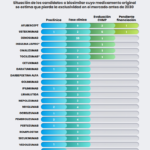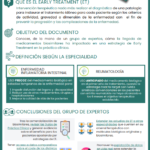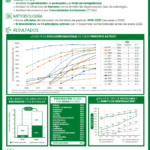The Greek capital hosted last June the 19th Annual Congress of the European Association of Generic Medicines (EGA), a meeting in which the key role of pharmaceuticals was highlighted generics and biosimilars in the sustainability of European healthcare systems.
Gudbjorg Edda Eggertsdottir, president of the EGA, stressed that generic companies guarantee both high-quality jobs and know-how, which is why they currently play a fundamental role in Europe. In addition, according to his criteria, "these strategic industries benefit society and patients" and increase competitiveness and innovative capacity. "The EGA is ready to work with European and national authorities to make the concept of sustainable manufacturing a reality in the continent, so we ask the European Commission to consolidate the role of generic and biosimilar medicines in member countries. And that it places these drugs in a fundamental place within its industrial policy ”, he added.
In parallel, the regulatory pressure on drug manufacturers is greater, with new legislation in the pipeline applied in fields as diverse as counterfeit medicines (with a directive with an estimated cost of one billion euros to which they owe another 200 million per year), pharmacovigilance, variations, transparency and clinical trials. Another example is the deadline imposed by the Commission, which ended on July 2, for sending the documentation proving that good manufacturing practices or similar regulations for the importation of active pharmaceutical ingredients are complied with.
"For these reasons, It is essential for our industry that legislators strike the right balance between increased regulatory requirements and continued pressure on prices to achieve this sustainable industrial environment that is putting generic manufacturers on the ropes, especially in southern Europe.”,said Beata Stepniewska, acting general director of the EGA.
As this expert pointed out, the experience of countries such as Germany or the Netherlands shows that the establishment of auctions creates an unsustainable market, with serious consequences for the industry and for patients, due to shortages. On the other hand, the cut in prices is the main threat to the sustainability of the sector and affects the majority of countries, a particularly serious situation in the case of biosimilars, which were treated as Generic Pharmaceutical Equivalent with respect to the price and reimbursement conditions, despite the fact that their development may require more than eight years, with a cost of between 100 and 250 million euros.
“Health spending in Europe has fallen for the first time since 1975 by approximately 0,5%, so there is an urgent need to promote sustainable long-term care. And generic medicines and biosimilars have a role to play in the field of healthcare professionals under increasing financial pressure: we provide higher value medicines”, summarized Gudbjorg Edda Eggertsdottir.




